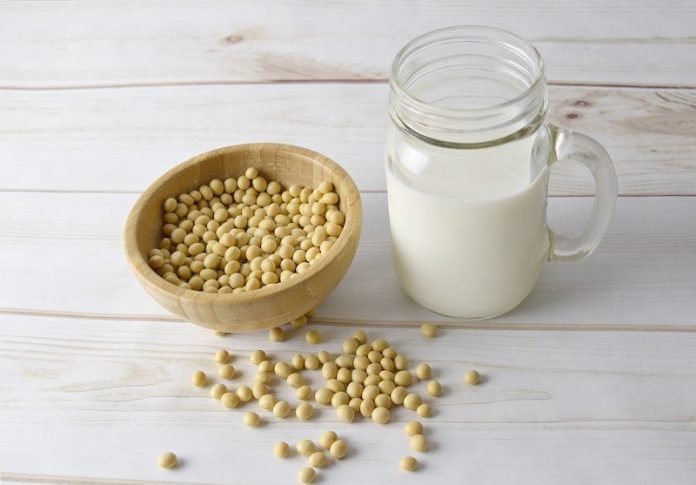
Researchers in recent years have demonstrated the health benefits of soy, linking its consumption to a reduced risk of heart disease, obesity, cancer, and improved bone health.
In a new study, researchers found soy may help improve the post-operative treatment of bone cancer.
They showed that the slow release of soy-based chemical compounds from a 3-D-printed bone-like scaffold resulted in a reduction in bone cancer cells while building up healthy cells and reducing harmful inflammation.
The research was conducted by a team at Washington State University.
Osteosarcoma is a type of cancer that produces immature bone. It occurs most often in children and young adults.
Despite medical advances, patients with osteosarcoma and metastatic bone cancer experience a high rate of recurrence, and osteosarcoma are the second leading cause of cancer death in children.
Treatment involves surgery to remove the tumor as well as pre- and post-operative chemotherapy.
Large areas of bone need to be removed and repaired, and patients often experience strong inflammation during bone reconstruction, which slows healing.
High doses of chemotherapy before and after surgery can also have harmful side effects.
Researchers would like to develop gentler treatment options, especially after surgery when patients are trying to recover from bone damage at the same time that they are taking harsh drugs to suppress tumor growth.
In the study, the team used 3-D printing to make patient-specific, bone-like scaffolds that included three soy compounds and then slowly released the compounds into samples containing bone cancer as well as healthy bone cells.
Soybeans contain isoflavones, plant-derived estrogens that have been shown to impede cancer cell growth for many types of cancer without being toxic to normal cells.
Isoflavones have also been shown to improve bone health and possibly prevent osteoporosis.
The team found one of the soybean compounds caused a 90% reduction in bone cancer cell viability in their samples after 11 days.
Two other soy compounds, meanwhile, significantly improved the growth of healthy bone cells.
Furthermore, using the soy compounds in animal models also reduced inflammation, which could benefit bone health as well as overall recovery.
The researchers now are continuing the unique area of research, studying the specific pathways of the genetic expression of natural compounds and the benefits of integrating them in biomedical technology.
One author of the study is Professor Susmita Bose.
The study is published in Acta Biomaterialia.
Copyright © 2020 Knowridge Science Report. All rights reserved.



